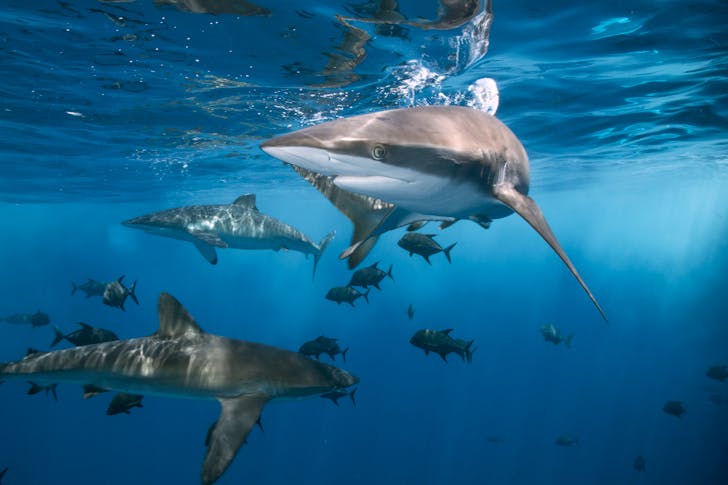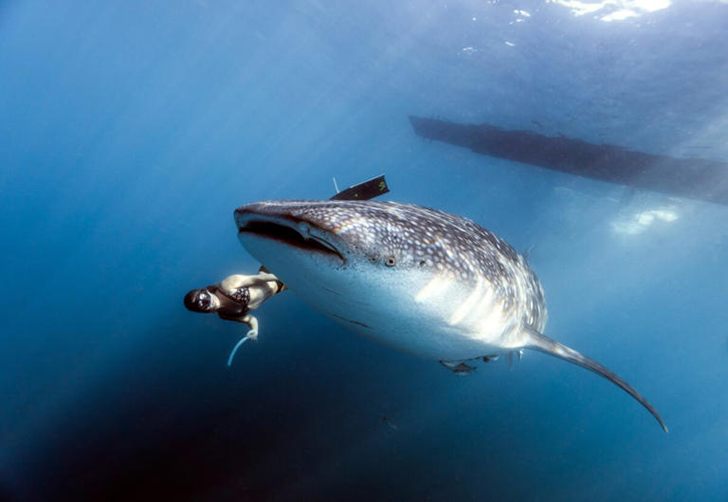Sharks, often cast as the menacing predators of the sea, are among the most misunderstood creatures on our planet. With an image tarnished by horror stories and blockbuster movies, these remarkable fish have a lot more to offer than spine-chilling thrills. That being said, here are some surprising facts about sharks that will make you question everything you know about these apex predators.
10 Facts About Sharks You Need to Know
1. There Are Over 500 Species of Shark
The shark family is far more diverse than most people realize, boasting over 500 species. These range from the tiny dwarf lantern shark, small enough to fit in the palm of your hand, to the majestic whale shark, the largest fish in the sea. Unfortunately, this vast diversity is under threat, with 143 species listed by the IUCN as vulnerable to critically endangered. The survival of these creatures is crucial, not just for the health of marine ecosystems but for our global heritage.

2. Sharks Are Apex Predators
Sharks sit at the top of the food chain, playing an essential role in the health of marine environments. They help maintain the balance by preying on the sick and weak, thereby preventing the spread of disease and keeping populations of other species in check. Fascinatingly, many sharks have several rows of teeth and can lose and replace thousands over their lifetimes, a testament to their efficiency as predators.
3. Sharks Live in Most Ocean Habitats
Far from being just open ocean dwellers, sharks can be found in nearly all marine environments. They roam the balmy waters of tropical coral reefs, navigate the deep and mysterious abyss, and even venture beneath the icy crust of the Arctic Sea. This adaptability allows them to play a vital role in various marine ecosystems.
5. They Can Be Weird and Wonderful
Sharks can be downright bizarre. Take the goblin shark, with its protruding snout and sharp teeth, or the hammerhead shark, with its wide-set eyes and distinctive head shape, ideal for pinning stingrays against the ocean floor. Then there’s the cookie-cutter shark, named for the circular bite marks it leaves on its prey. These unique adaptations are a window into the evolutionary creativity of nature.
5. Most Sharks Are Cold-Blooded
Like most fish, sharks are generally cold-blooded, meaning their body temperature matches the water they swim in. However, the great white shark breaks this mold by being partially warm-blooded. This adaptation allows it to hunt more efficiently, as it can heat its body to move swiftly in cold waters.
6. We Get Sharks Around the UK
The waters around the UK are home to a surprising variety of sharks, including the basking shark, blue shark, and even the Greenland shark. The basking shark, Britain’s largest fish, can grow up to 11 meters long and weigh as much as a double-decker bus. These gentle giants are a testament to the unexpected wonders lurking in British waters.
7. Sharks Have a Sixth Sense
Sharks possess what can only be described as a sixth sense. This ability, known as electroreception, allows them to detect the faint electric fields generated by other animals in the water. Located in the sharks’ snouts, the ampullae of Lorenzini are jelly-filled pores that can sense even the slightest electrical signals, making sharks formidable hunters.
8. They’ve Been Around for a Long Time
Sharks are ancient mariners, having roamed the world’s oceans for over 400 million years. This makes them older than the dinosaurs and most other creatures on Earth. Unlike bony fish and mammals, sharks’ skeletons are made of cartilage, which is why they don’t leave behind traditional fossils. However, their teeth, durable and plentiful, have been found fossilized, offering glimpses into their long and storied past.

9. They’re Under Threat
Despite their prowess as predators, sharks face numerous threats from human activities. Many are caught accidentally in fishing nets, while others are hunted for their fins, a delicacy in some cultures. Climate change, pollution, and habitat destruction further endanger these magnificent creatures, disrupting their natural habitats and food sources. The conservation of sharks is a pressing issue, as their decline could have profound effects on marine ecosystems worldwide.
10. They Can Vary Dramatically in Size
The size range among sharks is nothing short of astonishing. The dwarf lantern shark might be as small as your hand, but on the other end of the spectrum, the whale shark can grow up to 12 meters long, about the length of a large school bus. This incredible size variation highlights the adaptability and diversity of sharks across different marine environments.
Wrapping Up
As you peel back the layers of facts about sharks, you uncover the critical roles they play in our oceans. These facts not only broaden your perspective but underscore the urgency of shark conservation. Together, you can shift narratives and foster actions that ensure sharks continue to thrive, safeguarding the balance of marine ecosystems for generations to come.
